
Long-read
The truth about woke
This insidious, illiberal ideology has nothing to do with protecting the marginalised.
Most will already have some idea of the problem commonly referred to as ‘wokeism’ or ‘cancel culture’. Because these terms are so slippery, it can be very hard to define them in a universally accepted way and therefore to criticise them. This is made especially hard when advocates of the theories behind this particular form of activism insist that the word ‘woke’ is a just pejorative used by right-wing bigots to prevent people from talking about social justice. Or they maintain that cancel culture is a myth created to shield those with privilege from accountability and to delegitimise the marginalised who call out bigotry.
Nevertheless, ‘wokeism’ refers to a real phenomenon with identifiable characteristics. It is not simply about opposition to racism or other bigotries. Equally, cancel culture refers to a real phenomenon that extends beyond heaping scorn on celebrities and other high-profile people on social media for something they’ve said or done. It affects many more people who have been bullied, pilloried, shamed or fired simply for expressing an unpopular idea or for asking the wrong question. We see manifestations of it daily that threaten fundamental rights and inhibit democratic processes. Rather than use these two separate but interrelated terms, I will refer to this overall phenomenon as ‘Critical Social Justice’.
The core tenets of Critical Social Justice are easily recognisable and distinguishable from other ethical frameworks. They rest on a belief in largely invisible systems of identity-based power into which everybody has been socialised. This simplistic belief rejects both the complexity of social reality and the individual’s agency to accept or reject bigoted ideas. This makes it different from most other ethical frameworks that oppose prejudice and discrimination.
Critical Social Justice theorists and activists apply their ‘critical’ methods to analyse systems, language and interactions in society to ‘uncover’ these power systems and make them visible to the rest of us. In their framework, these identity-based power systems include ‘whiteness’, ‘patriarchy’, ‘colonialism’, ‘heteronormativity’ and ‘transphobia’. They are believed to infect all aspects of society and even the most benign everyday interactions. The belief that people are unable to avoid being racist, sexist, or transphobic because they have absorbed bigoted discourses from wider society is a tenet of faith that originated in postmodern thought, particularly that of Michel Foucault.
Following on from its focus on invisible systems of oppressive power and how language often serves those systems, Critical Social Justice demands enforcement of the right ways of thinking and punishment of the wrong ways of thinking. When teachers are fired for including black conservative intellectuals like Glenn Loury in Black History Month, or firefighters face disciplinary action for saying they do not care what race or gender identity an individual has when saving their lives, or graduate students are at risk of not being allowed to finish their PhDs for the crime of referring to people who give birth as ‘mothers’, we can safely say that we are living in a culture in which people are punished for thinking the wrong way.
Critical Social Justice is, at root, based on two core premises: (1) invisible power systems like white supremacy, patriarchy, and heteronormativity permeate all of society; and (2) most people cannot see them because these systems just seem normal to us and, for the majority and the powerful, it is more convenient that we not see them.
Therefore, Critical Social Justice focusses primarily on oppressive attitudes, beliefs and narratives that are assumed to exist in society, and that are perpetuated primarily by the groups in society seen as dominant – the white, the male and the straight. They can also be upheld by groups seen as marginalised, who may either knowingly uphold, say, ‘white supremacy’ to curry favour with the dominant groups or because they have internalised the narratives underlying them. According to Critical Social Justice ideology, the way to dismantle these invisible power structures is to address the attitudes, beliefs and biases people are assumed to have using specific ‘critical’ methods. These centre on scrutinising and policing the use of language in society.
To be ‘woke’ is to have become aware of these alleged invisible power systems and to want to act to dismantle them. This involves ‘awakening’ others to the Critical Social Justice view of the world and joining in the policing of themselves and others. The symbolism of ‘being woke’ reflects the belief that a specific process is needed to arouse people from their stupor and bring them to a state of awareness.
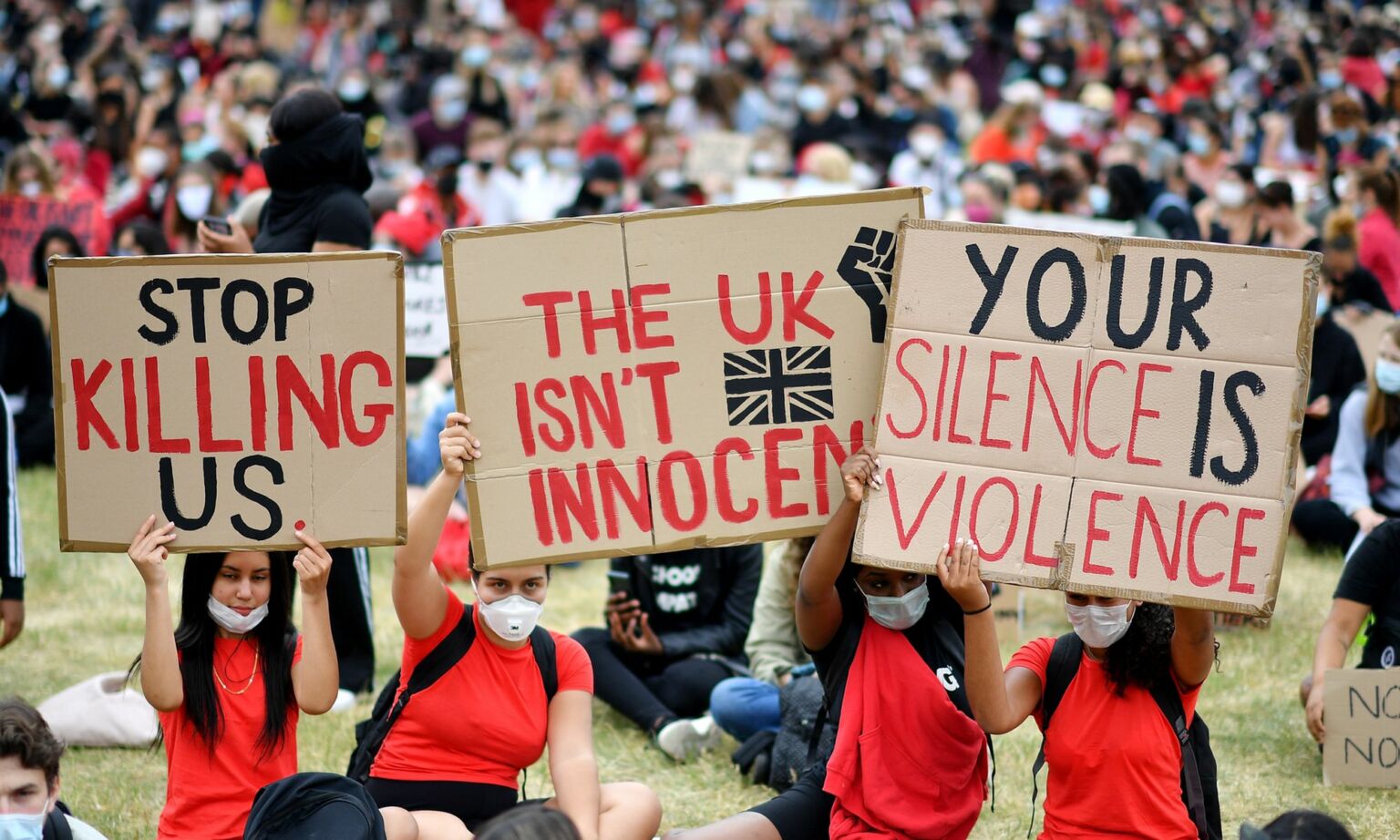
Within Critical Social Justice ideology, the term ‘critical’ holds a different meaning from its everyday usage. In common usage, to be critical can mean to think negatively of something, or it can be related to what we’d usually think of as ‘critical thinking’, where we attempt to step back from an issue and survey it as rationally and objectively as possible with the purpose of establishing whether it is true or ethically sound. Critical theorists, however, draw a sharp distinction between ‘critical thinking’ and their meaning of ‘critical’. Alison Bailey, a Critical Social Justice theorist in education, makes this distinction explicit. She begins by describing what is meant by ‘critical thinking’:
‘To be critical is to show good judgement in recognising when arguments are faulty, assertions lack evidence, truth claims appeal to unreliable sources, or concepts are sloppily crafted and applied… In this tradition, sloppy claims can be identified and fixed by learning to apply the tools of formal and informal logic correctly.’
Here, Bailey provides an accurate understanding of what is generally meant by critical thinking. Humans are not perfectly rational, objective and logical beings; we get at truth best by evaluating arguments and truth claims on the grounds of the soundness of their reasoning and the strength of their evidence. To work properly and minimise confirmation bias (only looking at the evidence that confirms what one already believes) and motivated reasoning (using rationalisations for what one already believes), this evaluation needs to be done with other people with different views. Other people are likely to be equally biased but will be more likely than us to see the flaws in our arguments, point out the problems with our evidence, and offer counterarguments and disconfirming evidence for us to consider. Through civil and honest debate, we can arrive at a greater approximation of truth and find more productive solutions to our problems. It is not a perfect system, but science has advanced significantly, and human rights and equality have improved dramatically in societies where this process of rigorous, open debate has been allowed.
As Bailey makes clear, however, this is not how the word ‘critical’ is used within Critical Social Justice theories. Because these emerged from both neo-Marxist and postmodern thought, the word ‘critical’ refers not to truth-seeking debate, but to criticising power structures that are believed to exist according to the ideology. For Bailey and other theorists, the ‘critical’ thinker is someone who is empowered and motivated to seek justice and emancipation.
Although Critical Social Justice ideas might have originated in neo-Marxist thought, theorists and activists are less interested in class and socioeconomic status and more interested in race, gender, sexuality and other identity-based groupings. They begin by assuming an oppressive identity-based power imbalance exists and then apply their critical methods to find it. This is how critical theorists Kiaras Gharabaghi and Ben Anderson-Nathe describe it in an article called, ‘The Need for Critical Scholarship’. They inform us that ‘critical research is not out to create truth’ and urge scholars to identify and engage ‘with power, with the social systems and structures, ideologies and paradigms that uphold the status quo’. This shows that ‘critical’ scholarship is not about establishing the truth, but about criticising things via a specific theoretical framework that begins with set assumptions about power dynamics and identity.
I have traced the complicated evolution of this scholarship in Cynical Theories, but the assumptions and doctrines that are foundational to Critical Social Justice ideology are rather simple. The core tenets are as follows:
(1) Knowledge is a social construct created by groups in society. These groups are determined by their identity in terms of race, gender, sexuality and more, and are deemed to have either dominant or marginalised positions in society.
(2) The dominant groups – white, wealthy, straight, Western men – get to decide which ‘knowledges’ are legitimate and which are not. They choose the ones that serve their own interests.
(3) These legitimised knowledges then become dominant discourses in society and simply the way to speak about things. Everybody is unavoidably socialised into them and cannot escape being so.
(4) People at all levels of society then speak in these ways, thereby creating and perpetuating systems of oppressive power like white supremacy, patriarchy and cisnormativity.
(5) Most people cannot see the systems of oppressive power that they are complicit in because they have been socialised into having those very specific biases and thus unconsciously act on this socialisation.
(6) Therefore, the systems of oppressive power are largely invisible and their existence and means of operation need to be theorised by Critical Social Justice scholar-activists.
(7) Only those who have studied Critical Social Justice theories are fully able to see the invisible power systems and must convey them to everybody else.
(8) Social justice (as defined by Critical Social Justice theories) can only be achieved by making everybody believe in these theories. This entails seeing and affirming these invisible power systems and their own complicity in them, as well as committing to dismantling them.
(9) Any disagreement with or resistance to Critical Social Justice beliefs is evidence of either ignorance or selfish unwillingness to accept one’s complicity in the oppressive power systems. Thus, any disagreement or resistance is automatically invalid.
(10) Therefore, the liberal belief in the individual’s agency to evaluate a range of ideas and accept or reject them is a self-serving myth, and liberalism, above nearly all other ideologies, is a major impediment to achieving (critical) social justice.
These ideas were once contained in the somewhat fringe academic departments in which they were developed. Only after they escaped the bounds of the academy and were applied to and acted upon in the world – namely, in the form of Critical Social Justice – did people more broadly begin to take notice of the practical damage and problems they inevitably cause.
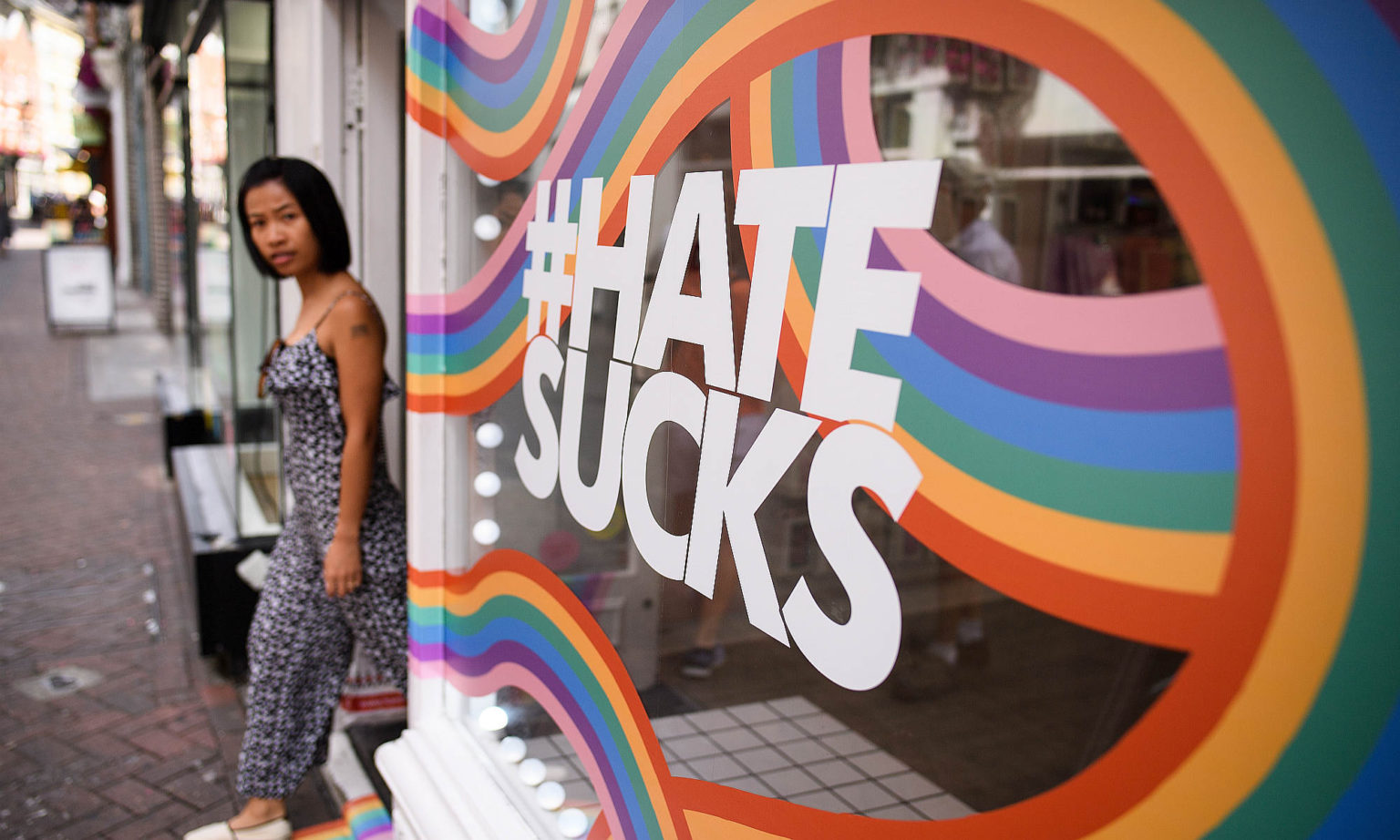
A primary reason why this illiberal, authoritarian ideology has been able to become culturally powerful is that no one of goodwill wants to stand against social justice. No one ever says, ‘we need less justice in society’, do they? It is, in fact, rather presumptuous for the Critical Social Justice movement to appropriate for itself the title ‘social justice’ and act as though it owns the term – as though the rest of the politically engaged world is seeking something else. Different political factions primarily disagree on the fine details of what a fair and just society should look like and how to achieve that in relation to things like taxes and welfare programmes. But there is a general consensus that a just society is one in which everybody is equal under the law and no group should be denied access to any rights, freedoms, or opportunities given to others. The mainstream view of social justice is that society should be fair to everyone.
But that’s not how advocates of Critical Social Justice see social justice. In fact, they oppose many approaches that seek justice and fairness, especially those based on empirical evidence that focus on the individuality of all people and our common humanity. As education professors Özlem Sensoy and Robin DiAngelo emphasise in Is Everyone Really Equal? (2017), their idea of Critical Social Justice differs from an idea of social justice based on ‘commonly understood… principles of “fairness” and “equality” for all people and respect for their basic human rights’. They prefer the term Critical Social Justice ‘in order to distinguish our standpoint on social justice from mainstream standpoints’:
‘A critical approach to social justice refers to specific theoretical perspectives that recognise that society is stratified (ie, divided and unequal) in significant and far-reaching ways along social-group lines that include race, class, gender, sexuality and ability. Critical Social Justice recognises inequality as deeply embedded in the fabric of society (ie, as structural), and actively seeks to change this.’
As this passage indicates, other approaches to social justice may not hold that society is stratified so simply along identity markers or that these stratifications permeate everything all the time. Indeed, people who care about a just society but are not convinced that the ‘critical’ method will help to achieve one can take a variety of approaches to measuring and addressing inequalities, prejudice and discrimination. Yet these once-fringe ‘critical’ theories have, by design and intention, entered the mainstream, and their adherents, as taught and trained, are actively seeking to change the inequalities that they believe are ‘deeply embedded in the fabric of society’. They act accordingly wherever and whenever they can, whether in government, the judicial system, corporations, educational institutions, religious congregations or even hobbyist groups.
The idea that we have all been socialised into horrible bigoted beliefs like white supremacy and patriarchy, and that even those of us who think we abhor them have them lurking deeply in our unconscious, has been impacting people for some time now in places they simply have to go to and cannot avoid. At work, at university and in many other vital institutions, people find themselves obliged to allow specialist trainers to dig these unconscious bigoted beliefs out of us, tell us what they are, have us affirm them and commit to dismantling them via approved processes and re-education materials. Further, these ideas have been adopted and integrated across a wide range of academic and professional fields.
We need to push back. We, as a society, need scholarship and expertise that is not influenced or corrupted by this ideology.
Critical Social Justice is a worldview that aims to make everything into a zero-sum political struggle around identity and the power dynamics, experiences and knowledges believed to be tied to them. Critical Social Justice texts – forming a kind of Gospel of Social Justice – express, with absolute certainty, that all white people are racist, that being non-racist isn’t possible, that masculinity is pathological, that sex is not biological and exists on a spectrum, that disbelief in the concept of gender identity is killing people, that language is literally violence and that everything needs to be decolonised. In a matter of a few years, these ideas went from being discussed in obscure academic departments and journals to enjoying significant social prestige and political capital and having immense influence on mainstream media, major corporations, institutions of higher education, and the policies and proposals of major political parties.
The dominance of these ideas needs to be challenged more assertively and more unapologetically from a basis of knowledge and consistent principles if we genuinely want to create a better society for everyone.
The above is an edited extract from Helen’s new book, The Counterweight Handbook: Principled Strategies for Surviving and Defeating Critical Social Justice Ideology – at Work, in Schools and Beyond, published by Swift Press.
Helen Pluckrose is a liberal political and cultural writer and speaker. Visit her Substack, The overflowings of a liberal brain.
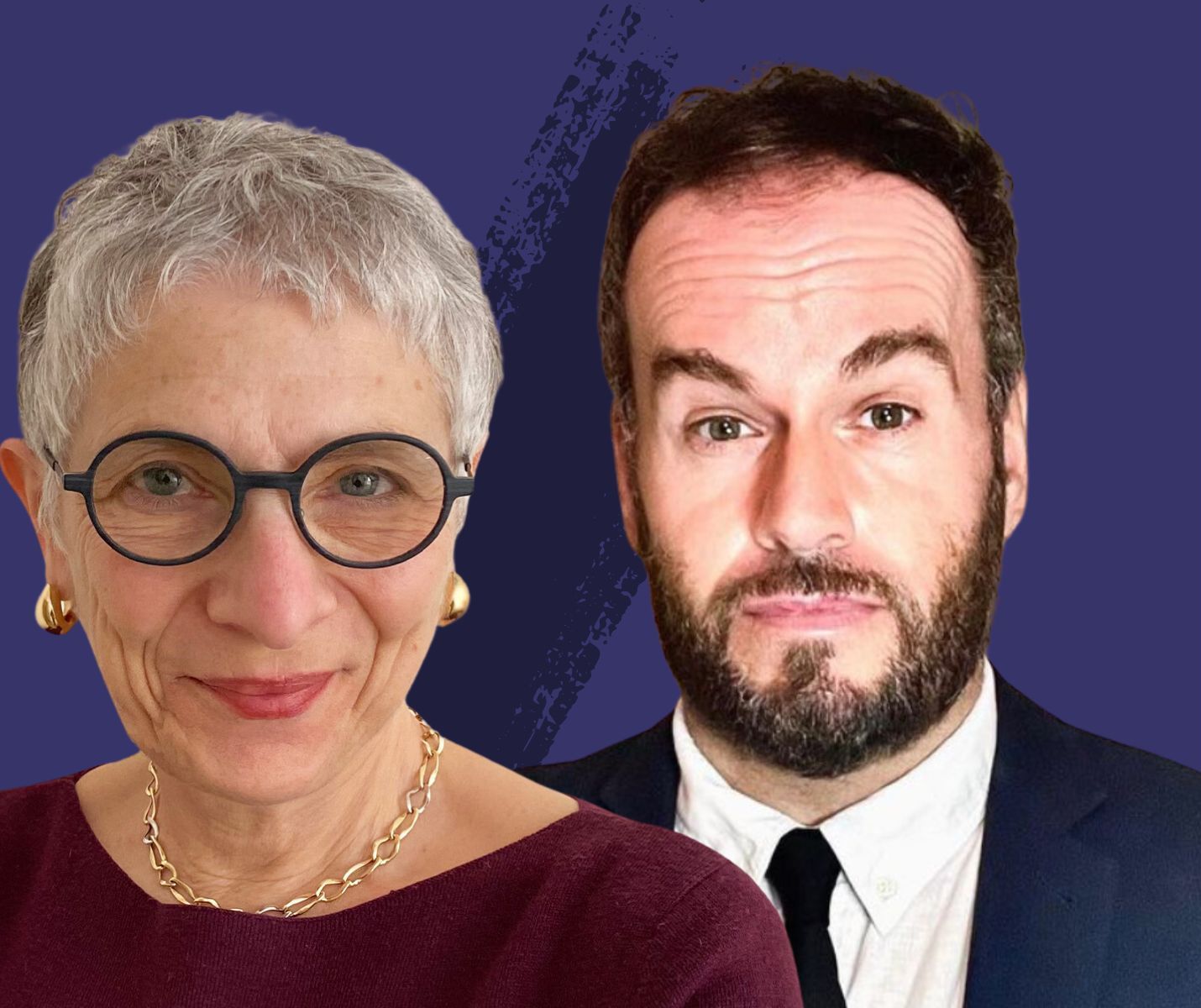
Melanie Phillips and Brendan O’Neill – live and in conversation
Wednesday 26 June – 8pm to 9pm BST
This is a free event, exclusively for spiked supporters.
Pictures by: Getty.
To enquire about republishing spiked’s content, a right to reply or to request a correction, please contact the managing editor, Viv Regan.




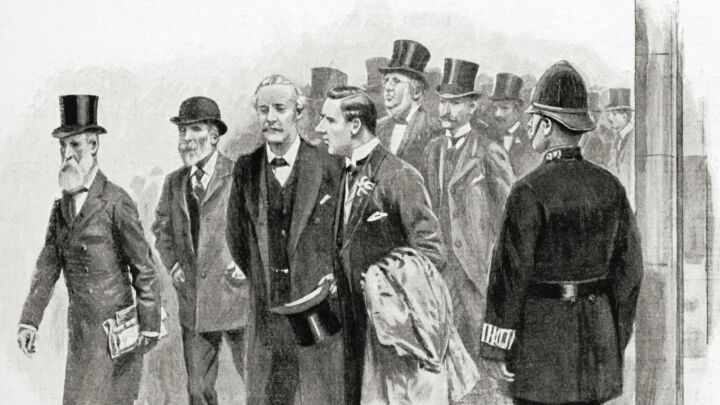
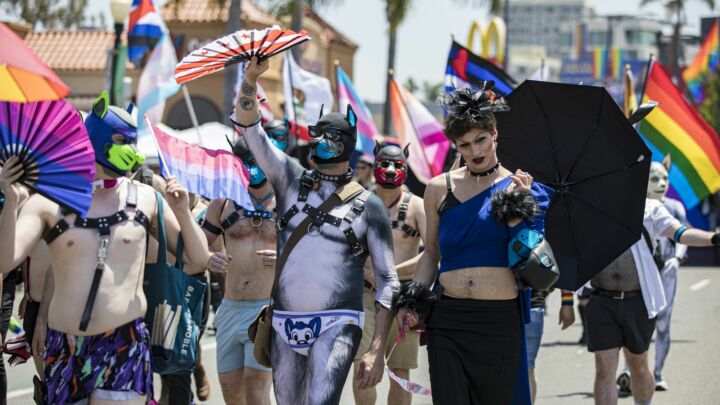

Comments
Want to join the conversation?
Only spiked supporters and patrons, who donate regularly to us, can comment on our articles.